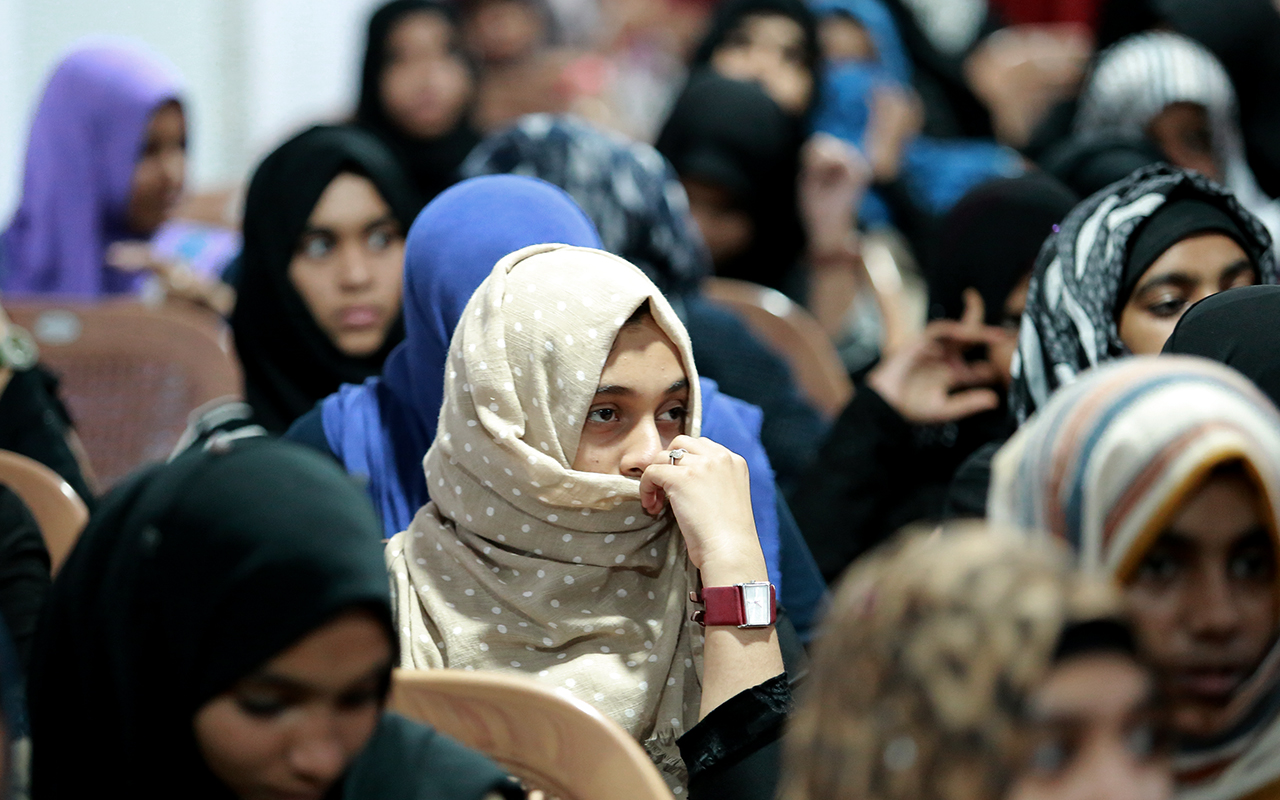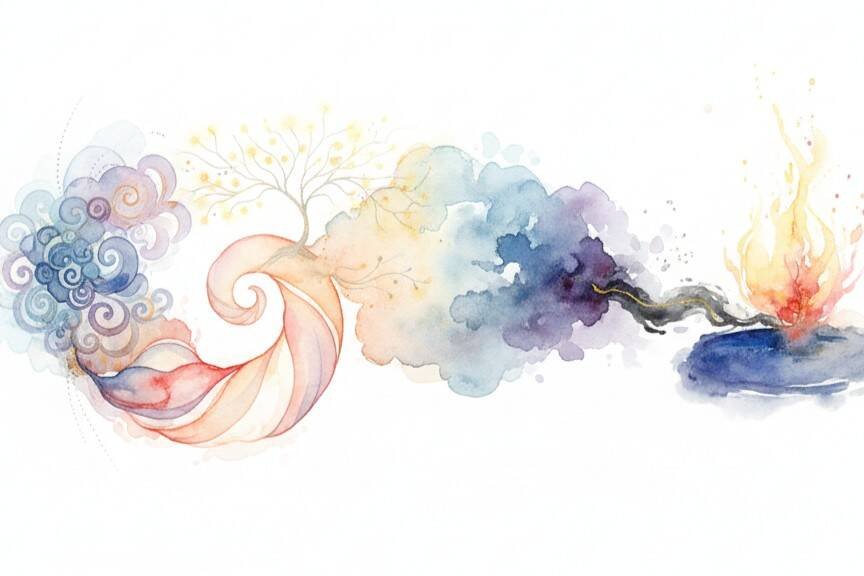Hijab, long criticized as an instrument of patriarchal oppression, has inadvertently won the hearts of many critics, writes Mujeeb Jaihoon
The recent Hijab row in Karnataka points to larger social malaise getting wider traction across India and that inadvertently might pose irreparable damage to the idea of nation guaranteed by the Indian Constitution. This unconstitutional encroachment is a brazen continuation of the alarming trend of hate attacks against minorities and Dalit communities with total impunity. The changing politics in the country after 2014 has ushered in assertive militant and masculine majoritarianism. Revenge politics espoused by Hindutva right wing political parties and cultural organizations are on a spiral path with stoic silence of State apparatus pandering to the cause of growth of contempt.
Intolerance Reloaded
The Hijab Ban is latest in strings of anti-Muslim campaigns. CAA protests precipitated an identity crisis among the beleaguered Muslims. It follows after the misogynistic episodes of ‘Sulli Deals’ and ‘Bulli Bai’ and the hate mongering Haridwar Dharma Sansad. Even the Triple Talaq Bill has produced a counter result as Muslims are opposing reforms due to fear of abrogation of personal law to bring uniformity at the cost of famed Indian diversity.
Karnataka has long become a laboratory for BJP to test waters to make a frontal gush to other south Indian states. Besides Goa, nowhere else in South India has BJP grown into credible electoral power and hence every development in Karnataka would have wider ripple effects across the region. The domino effects are already palpable with various BJP-ruled states contemplating similar curbs on Hijab in educational institutions.
Indianness at Stake
Dietary preferences were attacked earlier as violent mob lynching claimed several lives. The freedom to hold Friday congregation prayers was also infringed. The compromise deal in the Babri Masjid verdict rendered the existence of Muslims more tenuous. These attacks should not be misjudged squarely as attacks on one community long accused of being a generous recipient of appeasement politics. When the rights to honorable existence and religious freedom are trampled upon, the first casualties are the idea of ‘Indianess’ espoused by the framers of the Constitution and the exquisiteness of religious pluralism.
Hijab Ban: Bane on Women Education
In Karnataka, when Muslim women are heckled and restricted from entry to educational institutions, it is a gross violation of Article 21 A which promises Right to Education. Because Muslim women are the late entrants to higher education, the denial of education to them will aggravate backwardness among the community. BJP, which often projects itself as the liberator of Muslim women, should ensure the seamless education of Muslim women adhering to their religious choices.
Hijab: Not Overnight Fad
Hijab has been a central part of the Muslim female identity for centuries. Both the traditional Muslim women and her modern counterpart consider this apparel more than a mere identity apparel. Unlike the Saffron Shawl, unheard of in traditional Hindu commoner’s spirituality, Hijab is not an overnight political fad invented for communal indulgence.
Hijab Ban: Blessing in Disguise
Incidentally, the Hijab Row has also proved to be a blessing in disguise for the battered Faith. The Community has been receiving praise and prayers from across the political and intellectual spectrum. Hijab, which used to be criticized as a patriarchal instrument of oppression, has inadvertently won the hearts of some the most fervent critics. Many have also hailed the braveheart Muslim women who fought the ‘Saffron thugs’ as role models of courage and resistance.
Hijab: The Unapologetic Expression and Assertion
Donning Hijab isn’t Identity Politics Jingoism. It is rather an unapologetic expression and assertion of the new Indian Muslim female, ready to take on the majoritarian regime who fear the rise of the educated and empowered Muslim woman.
Wanted: Soul Searching
Notwithstanding the legal and political support for the Hijab, the Faithful also need to undergo soul searching to explore the spiritual and moral context behind this predicament. Community needs to ponder on the poverty of political and social leadership which encourage the miscreants to violate the right and freedom of the Faithful, which are enshrined in the Constitution. The call for Community representation in law, legal and legislation has not received adequate response so far.
***
Mujeeb Jaihoon is an Indian-born writer and community activist, who is better known for his books, Slogans of the Sage and The Cool Breeze From Hind. His blog can be reached at www.jaihoon.com
Mujeeb Jaihoon
Mujeeb Jaihoon, reputed Indian author, explores themes of universal love, deeply embedded in a disruptive spiritual worldview.
Related Posts
Nov 28 2025
The Market and Media’s Delulu Saga: Unpacking the Cinematics Behind Economic Boom and Bubble Bursts
Mujeeb Jaihoon traces the unholy alliance between the two actors in a…
Nov 27 2025
Character: The Trophy of Education
Education, be it sacred or secular, is everything but itself if it does not…
Nov 25 2025
Meta Existence: A Divine Gift, not by Vote or Merit
Mujeeb Jaihoon explores the five metaphysical stages of existence, revealing…
Nov 20 2025
Reckoning of the Elites: How do they Sleep?
A blistering critique of moral decay in the society's elites, and the ultimate…




